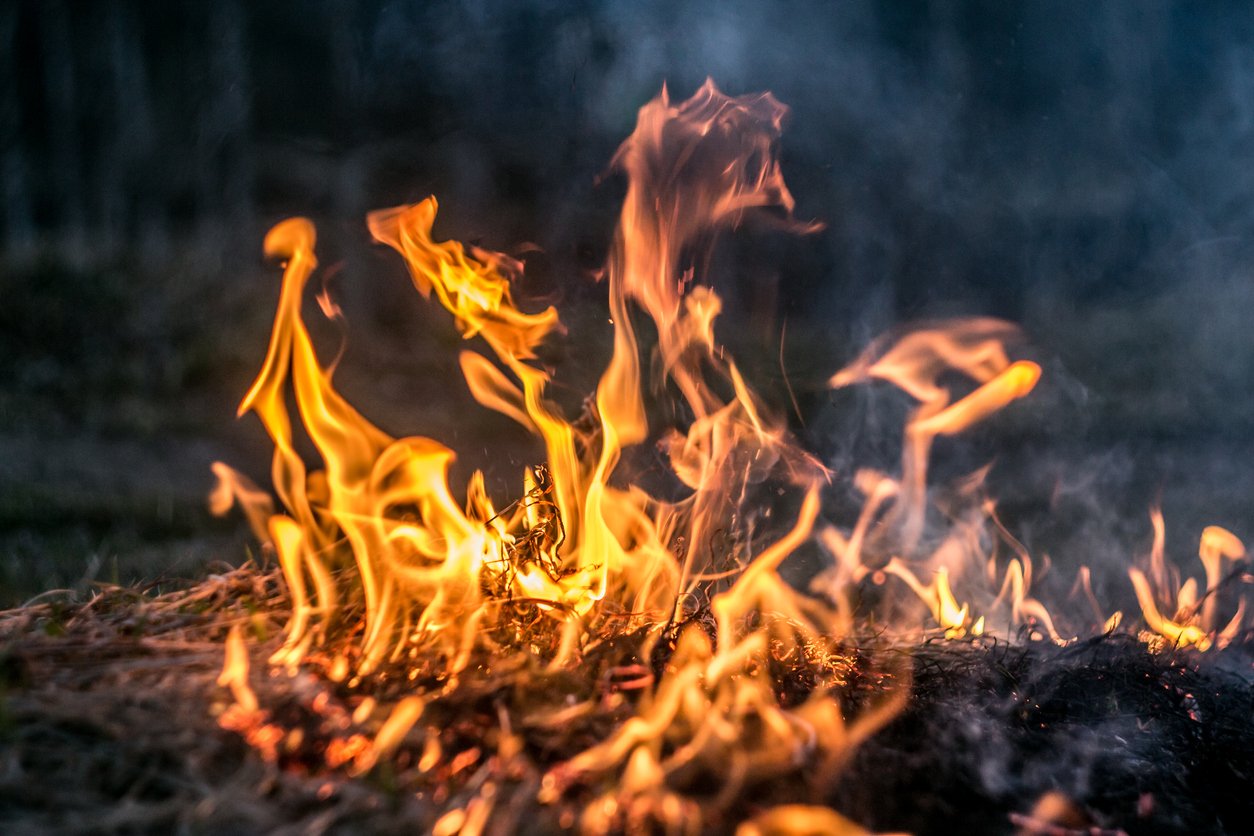
It’s hot as heck, especially in the south and southwest regions of the U.S right now. If you’re experiencing the heat wave first hand, you know it’s no joke. Keeping safe should be your top priority. This also includes maintaining your home and the area surrounding it – your lawn.
Extreme heat can quickly kill the grass you’ve been working hard to maintain all year. Dry and dead grass can also catch fire with ease, which can spread quickly to your home. But with some preventative and corrective lawn care, you can keep your lawn, and therefore your home, healthy and safe.
How to keep your grass from dying
Now is the time to be proactive. If your grass is green, that doesn’t mean it’s feeling healthy. It may be days away from turning brown, so get out there (when it’s safe to be outside) and give it some love before it gets damaged.
Here are a few alliterative tips to help you easily remember the do’s and don’t of keeping your grass alive through the heat wave:
Water when you Wake
This may seem like a no brainer, but watering grass during extreme heat is the single most important thing you can do to keep it alive. We recommend watering daily with heat like this, but please be sure to abide by local regulations for water usage in your state.
It also matters what time of day you water your lawn. You may intuitively think that doing so in the hottest part of the day would make sense because that’s when the grass gets thirstiest. Unfortunately, though, doing this isn’t as helpful as you might think because the water dries up instantly, leaving little for the grass to enjoy.
Try to water the grass after the hottest part of the day, like a little before sunset or in the morning before the heat starts to rise. Since it’s hot out there, maybe take a few minutes to stand in the sprinkler yourself to cool down.
Mow in the Morning
While mowing the lawn is typically a good habit for keeping a lawn healthy, you should use much more caution during this heatwave – not only to keep yourself safe, but also your lawn.
Is it bad to cut grass in a heat wave?
Yes, it can be. The heat leaves your grass ‘stressed’ and cutting it too often or too short can make this worse. If you do mow, try doing so a day or so after it rains, when your grass is likely to be happier.
What length should I keep my grass in extreme heat?
If you can, try adjusting the height of your mower blade to keep the grass about an inch higher. Longer grass will keep the roots cooler by providing more shade.
Another way to think about this is to avoid cutting more than a third of the grass off the top. This is a good rule to follow throughout most of the year, but especially when it’s hot.
Avoid Aeration (at least right now).
If you’re watering your lawn but your grass isn’t responding, you may need to aerate your soil. The hot ground may cause the water to evaporate before the grass can actually drink any. But unfortunately, aerating the lawn in the midst of the heat wave can worsen that problem by oxygenating the ground. It can also expose the grass roots to the extreme heat, killing it from the bottom up.
Once the heat wave ends though, we highly recommend that you schedule or complete an aeration once it is cooler. This can help reverse the damage being done as we speak.
Forget Fertilization
Although possibly counterintuitive, fertilizing can actually hurt the grass during the high heat.
Most fertilizer products are heat sensitive and shouldn’t be used in temperatures above 85 degrees.
That aside, think about grass like you might think of a person. The grass, much like the human body, requires more nutrients when it’s growing. In the extreme heat, the grass is already struggling to get enough nutrients to survive. Fertilizer makes the grass even hungrier when it’s already starving.
Stay safe!
Practice safe lawn maintenance by staying out of high noon heat while doing lawn or gardening work. You already know the best time of day for mowing is early in the morning anyway, so it’s better for you and your lawn to stay indoors during these hours.
Preventing fires from starting in your yard is also one of the most important precautions you can take during a heat wave. If smoking outside, always avoid throwing cigarettes in the grass after use. Fire pits and bonfires should be avoided even at night time whenever possible, but if used should be put out entirely before bed. Keeping your grass as healthy as possible will help reduce the risk of fires, but it is still a real concern.
